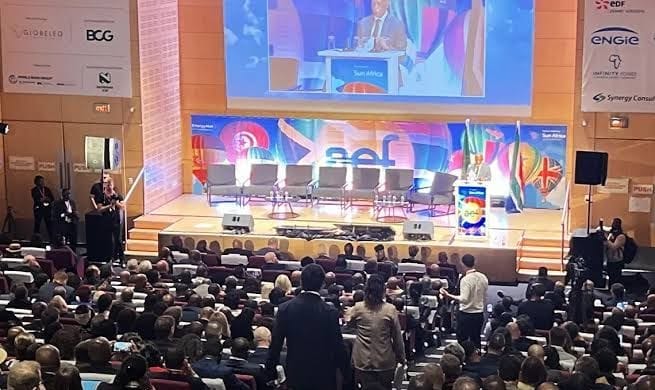The 27th Africa Energy Forum (AEF) commenced today with a resounding appeal for unity and swift action to resolve the continent’s deepening energy crisis, which continues to leave 600 million people without electricity.
In a keynote address, Amadou Hott, former Special Envoy for the Alliance for Green Infrastructure in Africa at the African Development Bank, emphasized the central role of energy in shaping Africa’s future. “Without reliable, sustainable, and affordable energy, transformation is out of reach,” he stated, underscoring that the continent’s development is inextricably linked to energy access.
A Vision of Integrated Power Networks
Hott advocated for a continent-wide approach to energy development, envisioning interconnected infrastructure that transcends borders. He illustrated the concept with practical examples: hydroelectric power generated in Kinshasa energizing factories in Lusaka, and gas from Nigeria driving industrial activity in Douala. According to Hott, large-scale investment requires the “scale, stability, and simplicity” that only regional cooperation can provide.
Africa, he noted, must mobilize $250 billion annually by 2030 to meet its energy demands, with $120 billion needed each year for the electricity sector alone. Yet the continent currently secures just 3% of global energy funding, despite comprising one-fifth of the world’s population.
Dire Need for Acceleration
Lerato Mataboge, African Union Commissioner for Infrastructure and Energy, echoed the urgency. She warned that, unless progress accelerates, 570 million Africans will still lack electricity by 2030. The stakes are high—not only in economic terms but for human well-being.
Mataboge highlighted the toll of energy poverty, citing that roughly 600,000 women and children die annually due to unsafe biomass usage for cooking. In her view, energy access must be treated as a basic human right.
Governments and Business Must Align
South Africa’s Electricity and Energy Minister, Kgosientsho Ramokgopa, framed electricity as essential to economic life. “It is not a luxury—it’s the oxygen of industry and growth,” he said. Through the AU-backed Mission 300, the continent seeks to extend electricity access to 300 million people by 2030. This, he emphasized, is not merely a plan but a political imperative, requiring $25 billion annually—less than 1% of total global energy investments.
From the private sector, SUN Africa’s Goran Rajsic urged immediate action, saying, “Africa needed electricity yesterday.” His firm is currently constructing 400 megawatts of solar energy capacity in Angola. Rajsic also promoted a model in which infrastructure remains under public ownership but is built and operated by experienced contractors—ensuring sovereignty while attracting expertise.
Towards a United Energy Future
As the forum continues through June 20, delegates emphasized the need to replace isolated strategies with a cohesive, continent-wide agenda. Closing his address, Hott urged, “It’s time to go from slides to substations, from discussions to connections, and from divided markets to a unified, electrified, and empowered Africa.”



